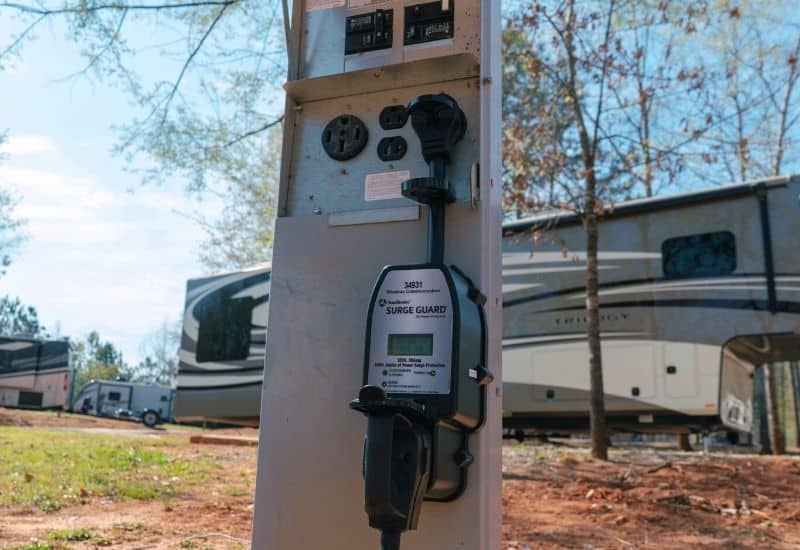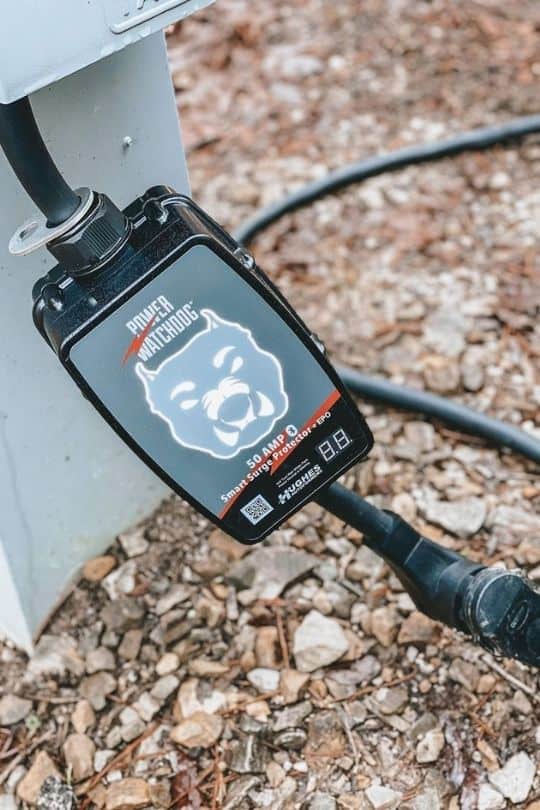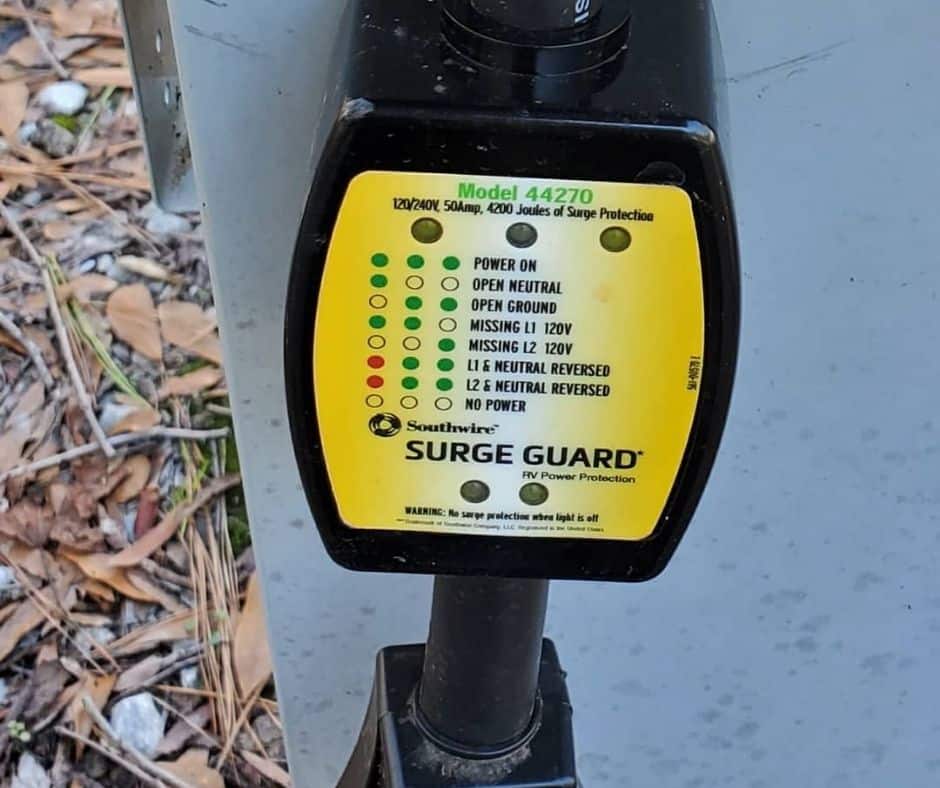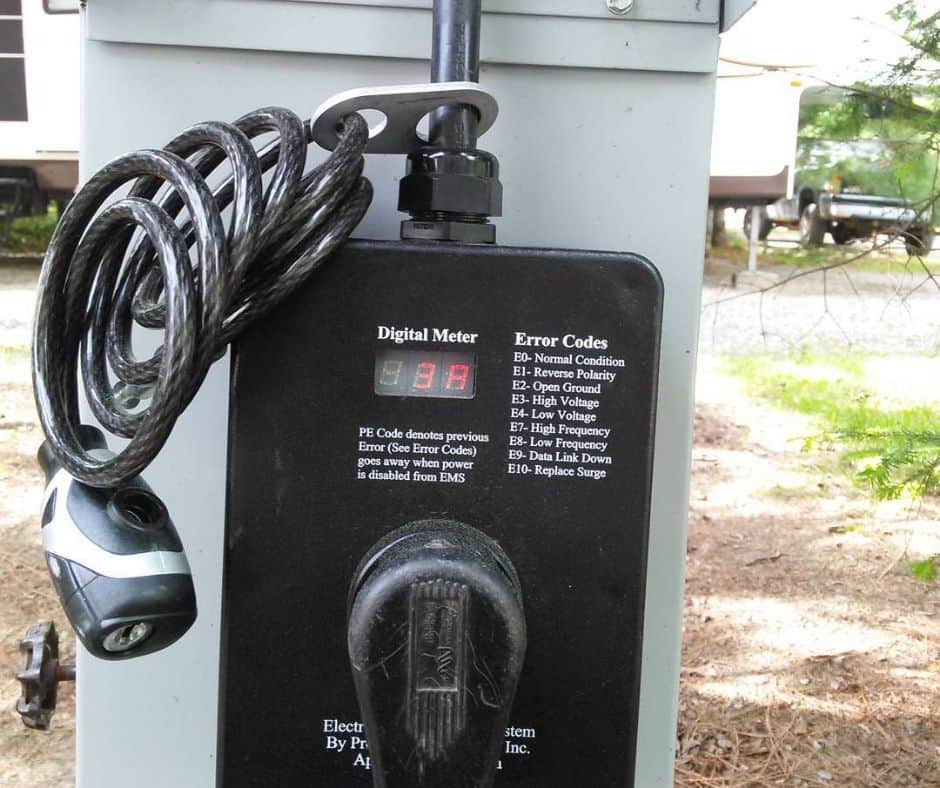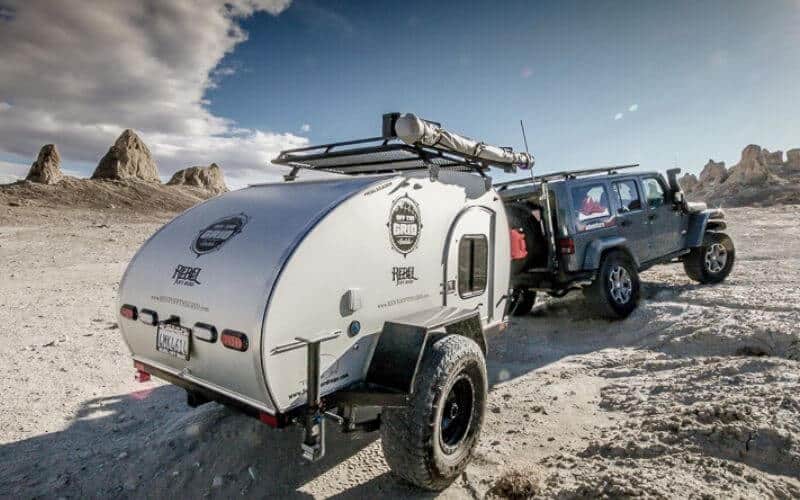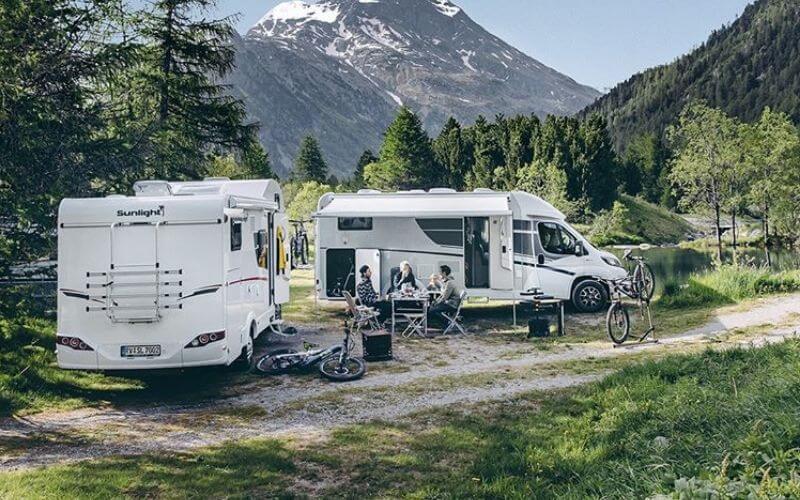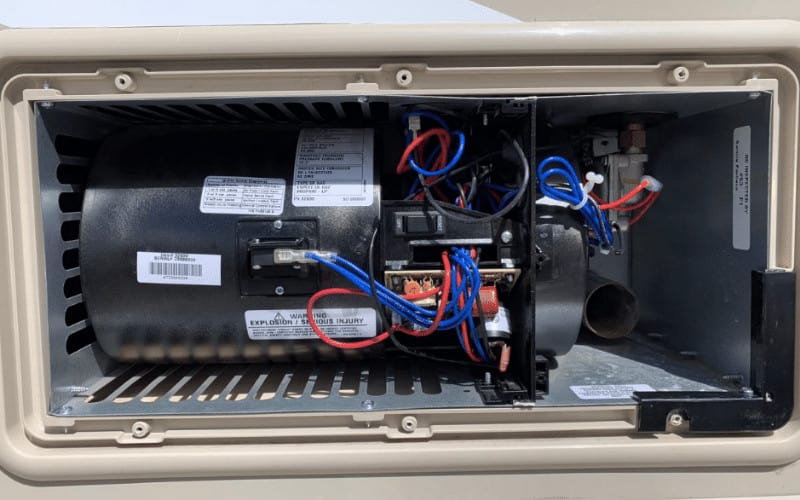Surge protectors are common RV accessories, yet they remain a topic of discussion among RVers.
While some long-time RVers may swear by certain brands, others claim they’ve never used one and also never had a problem.
Between mixed opinions with some frequently misused terminology, it’s easy to become confused about whether or not you even need a surge protector for your RV.
A surge protector is a device that protects your RV’s electrical appliances.
Surge protectors are not necessary for an RV to function, but they are highly effective and recommended to protect your RV’s electrical system from severe and unexpected electrical damage.
There are several ways in which damage can occur, as well as various degrees of protection offered by surge protectors.
Surge protectors can come with a hefty price tag that makes many question whether they truly need one.
However, the degree of damage that can occur without one greatly surpasses the cost of even the nicest device.
Read on to discover how surge protectors work and when you need one for your RV.
What is an RV Surge Protector?
To use all of the functions that your RV has to offer, you’ll need to connect to a power source – most commonly an electrical outlet at a campsite.
The problem is that it is not uncommon for the voltage coming out of campsite outlets to fluctuate.
This may be due to factors such as old and unmaintained wiring, or an unusually high draw of electricity from across the campsite.
An RV surge protectors is an electrical device that act as buffers between your RV and the electrical post to protect your camper electric equipment from power surges and voltage spikes at campsites.
The cheapest and most basic type of surge protector will protect against electrical spikes that can fry your equipment, while more expensive models will offer protection against the full breadth of potentially damaging electrical issues.
What Does A Surge Protector Do For An RV?
Surge protectors plug into an electrical outlet on one end and to your RV’s power cord on the other.
They monitor the electrical current and protect your your RV’s electronics from getting damaged from power strikes and surges happen because of lightning, power outages and grid malfunctions.
Depending on the problem, the surge protector will either alert you or it will cut off the current before it reaches the vehicle.
Surge Protector vs. EMS
A common debate in the RV community is whether to buy a surge protector or an EMS.
Although there are notable differences between devices, the topic can become confusing without the correct understanding of what these terms mean. Let me explain.
A surge protector is the general term for all devices that protect against the electrical issues that can occur when you plug into an outlet, regardless of the degree of protection or number of additional features the device may offer.
More intricate models will not only protect against surges, but against other issues as well.
One example of a more intricate surge protector is an Electrical Management System, or EMS.
EMS is a product line by Progressive Industries that offers protection against all possible electrical malfunctions. Their features include the following:
EMS have become a household name, yet they are only one type of full-coverage surge protectors.
The term EMS is like Kleenex and Ziplock – both are brand names, yet these names are commonly used to refer to all tissues and resealable plastic bags.
There are other surge protectors on the market that are not made by Progressive Industries and are thus technically not EMS, yet they offer the same degree of protection.
Aside from the specific features, the price of a surge protector you’re considering will be a good initial indication of the degree of protection it will offer.
While basic surge protectors can be found for under $100, models that offer full coverage protection can cost well over $200.
3 Reasons Why You Need a Surge Protector for Your RV
We’ve explained that surge protectors can protect your RV, but how important is it really? Let’s take a closer look at what electrical mishaps could happen and why you need a surge protector in your RV.
Protection Against Power Surges
Power surges are sudden increases in voltage, or in laymen’s terms, spikes in the flow of the electrical current.
They are one of the most common electrical malfunctions, yet they can do the most sudden and direct damage to devices.
These short spikes can be caused by things like lightning or faulty wiring, and they can vary in intensity.
While a large surge can fry your RV’s electronic equipment in an instant, smaller surges can cause long-term damage as parts and devices degrade more quickly.
By redirecting excess current, surge protectors keep equipment running on the preferred voltage.
Protection Against Low Voltage
Long-term damage can occur when devices run on less power than they technically require for prolonged periods of time.
The devices will begin to overheat, and you may not even know it’s happening.
Low voltage commonly occurs when there is an increased total draw. For example, the outlets at a busy campsite in the heat of summer when everyone is running their A/Cs may experience low voltage.
Surge protectors with protection against low voltage will detect this and cut it off before any damage is done.
If this happens to you, it is best to alert those in charge at your campsite and to ask if there is a different power pedestal that you can connect to.
Protection Against Other Possible Electrical Defects
Although not as common as high and low voltage, there are a several other electrical irregularities that you may encounter at campsites.
These can be dangerous or damaging, and include:
- Open ground
- Open neutral
- Reversed polarity
Surge protectors can save your equipment from overheating and potentially breaking completely.
They alert you when the voltage is not what it should be and they cut the electricity before damage can occur.
Choosing Which RV Surge Protector to Buy
Now that you have a better understanding of how surge protectors work, it is time to decide what model best fits your needs.
Is it best to get the most expensive, full coverage surge protector, just in case? Or is a basic surge protector without all of the bells and whistles really all you need? And do you even need to buy one at all?
The answer can be determined by how you camp and what your risk factor is. Some things to consider include the following:
Although a full degree of protection is the most ideal option, these surge protectors may not be in everyone’s price range.
Review sites are helpful in seeing a side-by-side comparison of the most popular RV surge protectors on the market.
By weighing your budget against the risk of damage associated with how you travel, you’ll be able to choose the best RV surge protector to buy for your travel needs.

